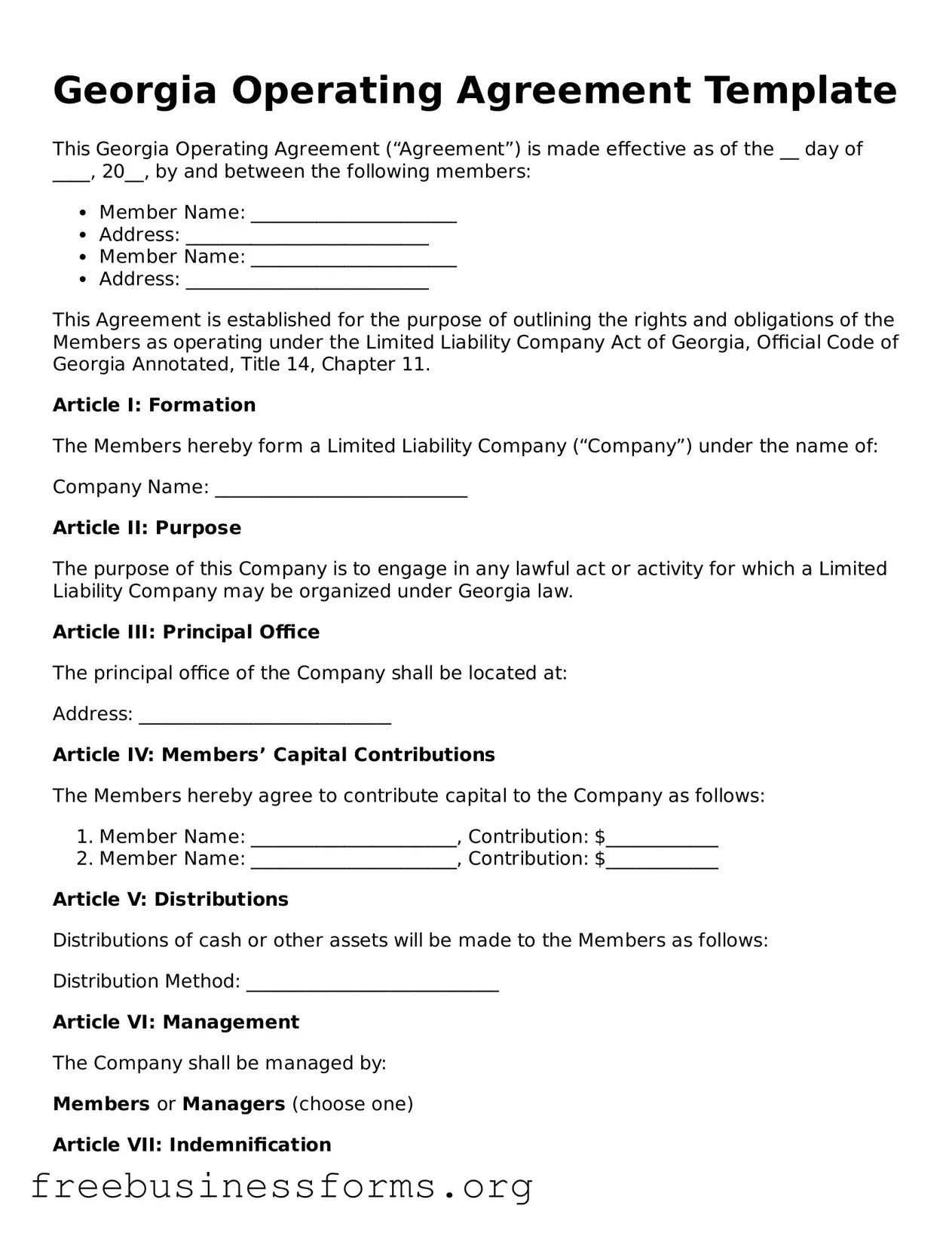Blank Operating Agreement Template for Georgia
The Georgia Operating Agreement form is a legal document that outlines the management structure and operating procedures of a limited liability company (LLC) in Georgia. This agreement serves as a crucial tool for members to define their rights, responsibilities, and the distribution of profits and losses. By establishing clear guidelines, the form helps to prevent disputes and ensures smooth operation of the business.
Open Form Here

Blank Operating Agreement Template for Georgia
Open Form Here

Open Form Here
or
↓ PDF File
Quickly complete this form online
Complete your Operating Agreement online quickly — edit, save, download.